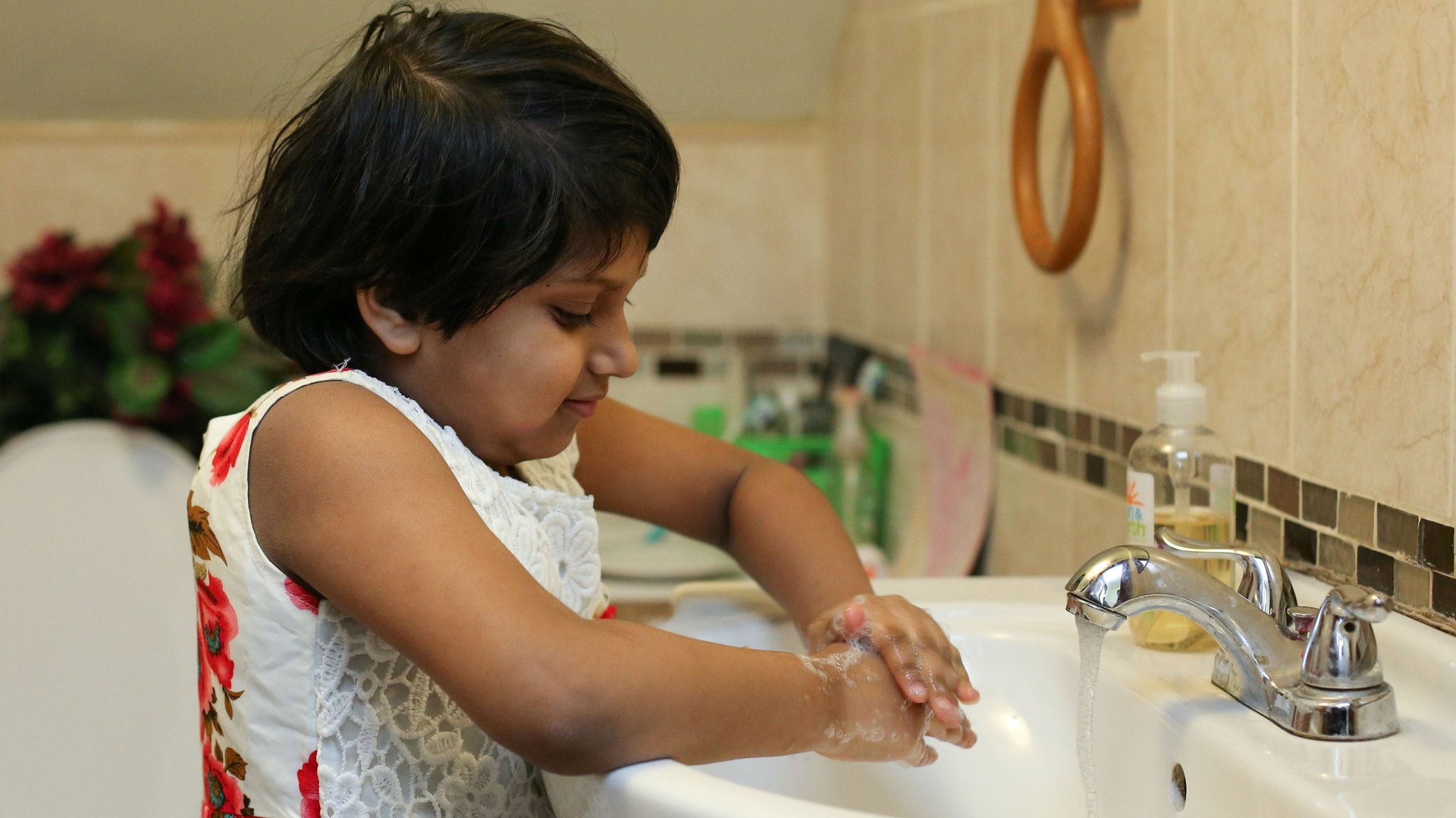When you’re washing your hands, water temperature doesn’t matter as much as scrubbing time
Washing your hands is one of the oldest staples of hygiene, and yet scientists are still debating exactly how we should do it.


Washing your hands is one of the oldest staples of hygiene, and yet scientists are still debating exactly how we should do it.
Hand washing is the best way to stop many of the infectious diseases we can contract nasally or orally (because most of us touch our faces about four times an hour). Because it’s such an important component of disease prevention, public health organizations have published standards for how exactly we should go about washing our hands. The US Food and Drug Administration, for example, requires that restaurants have sinks that deploy water that’s at least 38°C (100°F) for their employees.
But hot water doesn’t clean hands any better than H2O at tepid temperatures—at least according to new research (paywall) from scientists at Rutgers University. The only factor that does seem to matter is how much time you spend scrubbing.
For their work, researchers took 20 volunteers and made them repeat different hand-washing scenarios 16 times each for a total of 320 washes. In each case, the tested the amount of soap used (0.5, one, and two milliliters), water temperature (15°C, 26°C, and 38°C), and lather time (five, 10, 20, or 40 seconds). They also tested “bland” soap, which works by globbing up foreign matter and washing it away, and an antiseptic soap that kills bacteria on contact and is frequently used in surgeries (and falls outside of the FDA’s ban on antimicrobial soap.)
Every day, participants soaked their hands in a solution of liquid mixed with a harmless strain of the E. coli bacteria, and let their hands air-dry. Next, researchers gave them access to a sink with predetermined amounts and types of soap and water temperatures, and they instructed participants to wash their hands for different amounts of time. Afterward, they collected and sampled any remaining bacteria on the participant’s hands.
Of all the variables, the only one that mattered was how long folks lathered up (not including wetting and rinsing time). The participants had less bacteria after a 10-second lather compared to a 5-second soaping, and hand bacteria decreased even further when they washed their hands for 20 seconds—which is in line with what the US Centers for Disease Control currently recommends (they say to sing “Happy Birthday” twice while you lather). Beyond that, though, the differences weren’t significant.
Donald Schaffner, a food scientist at Rutgers and lead author of the study, thinks that this means the FDA regulations on hand washing need to be updated. “Instead of having a temperature requirement, the policy should only say that comfortable or warm water needs to be delivered,” he said in a statement. “We are wasting energy to heat water to a level that is not necessary.”